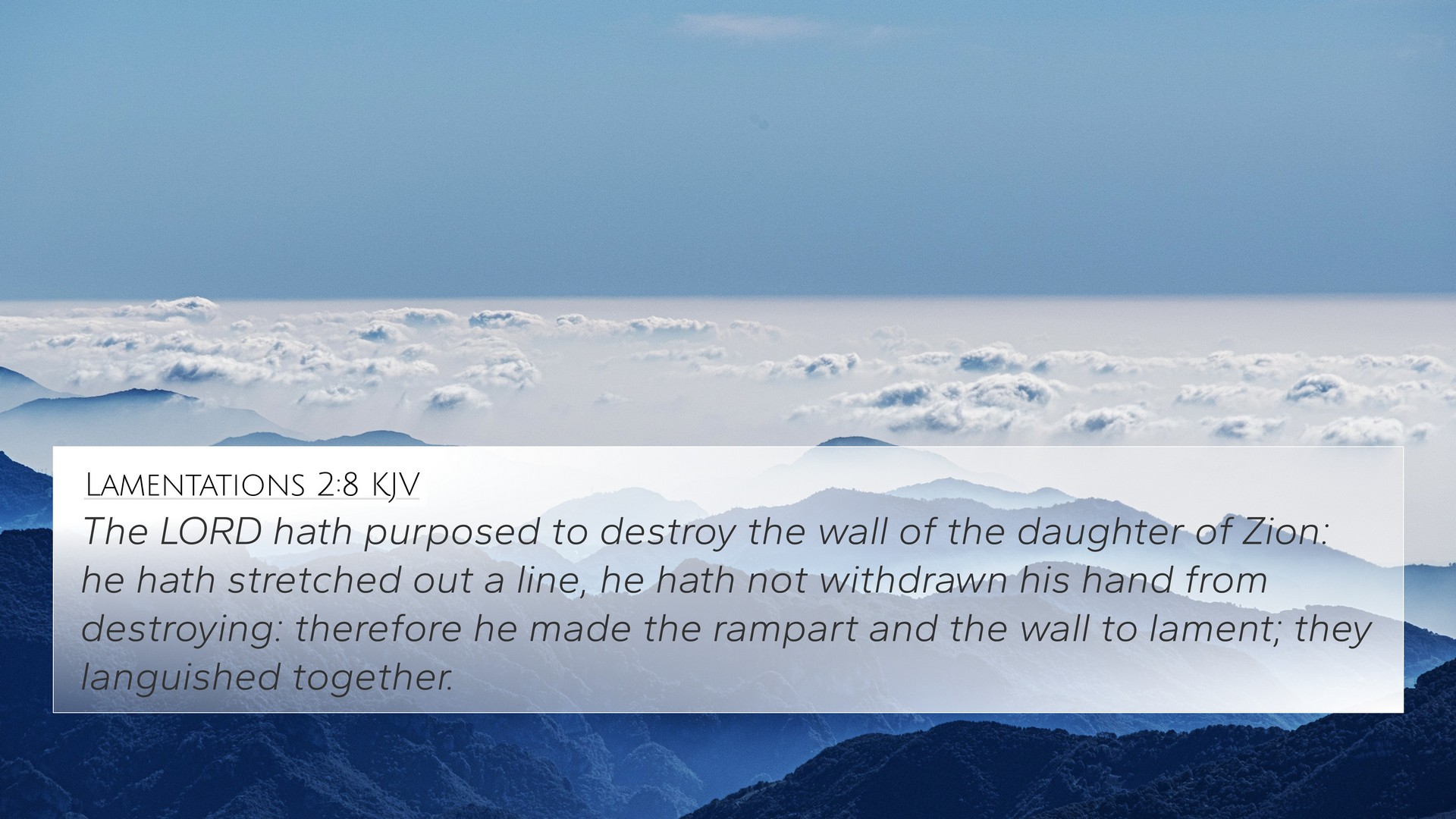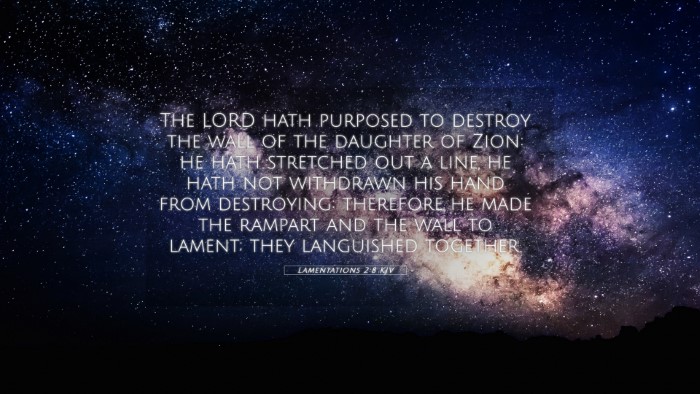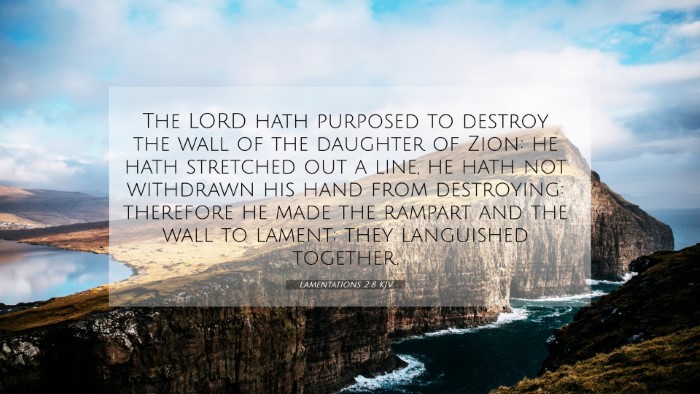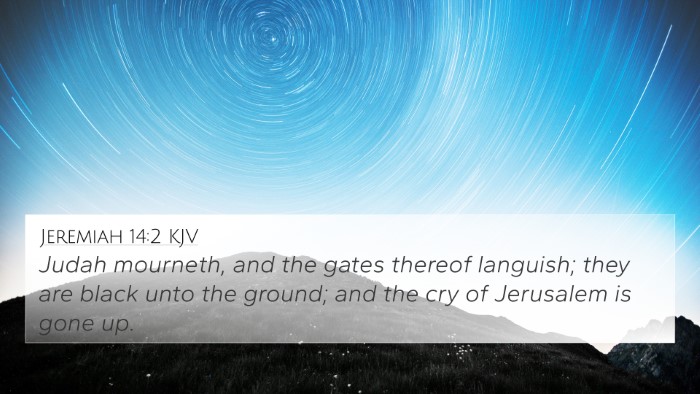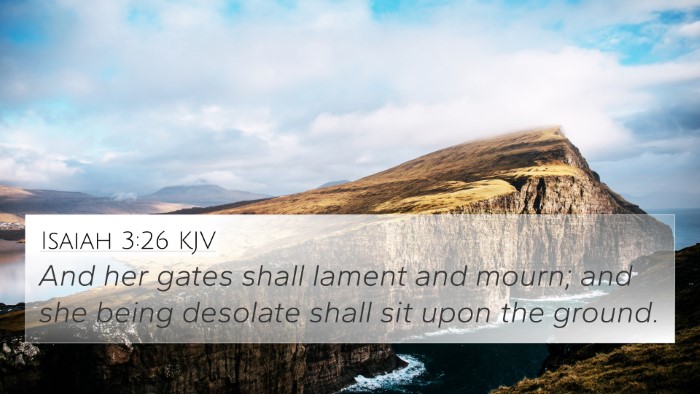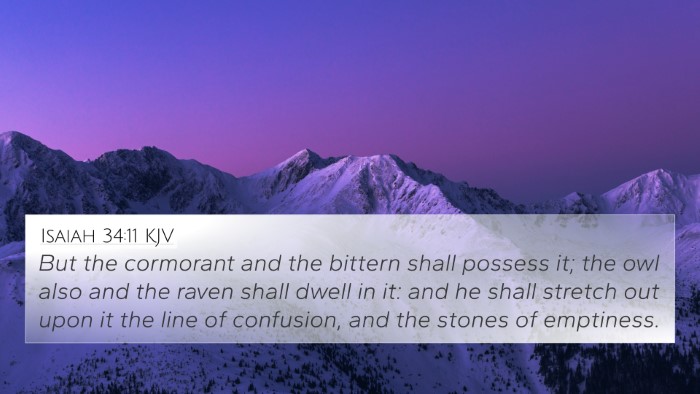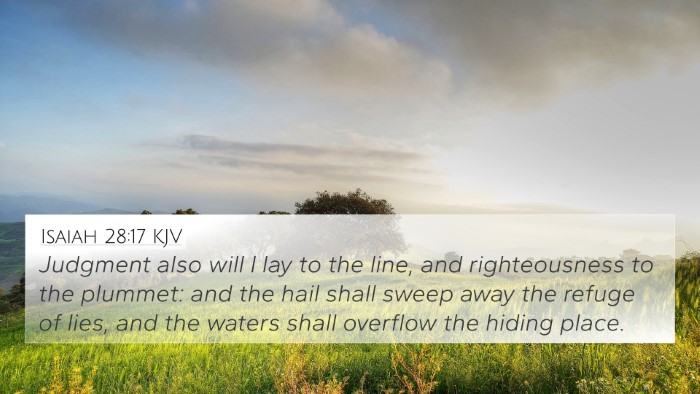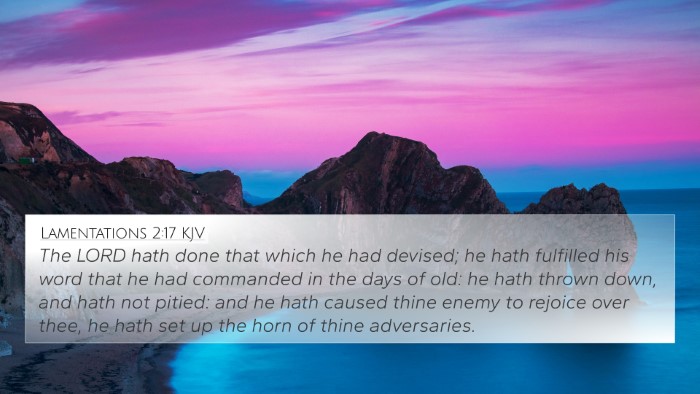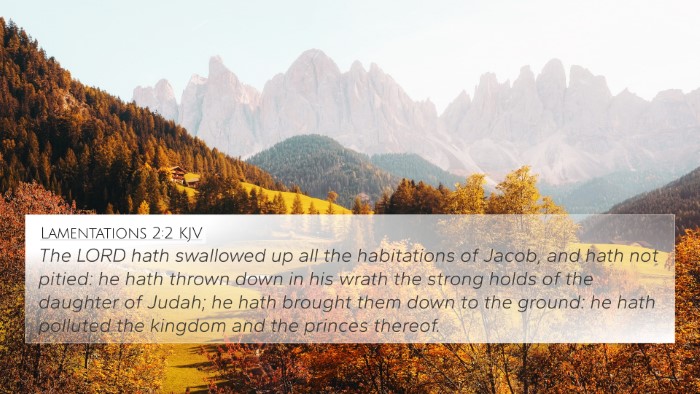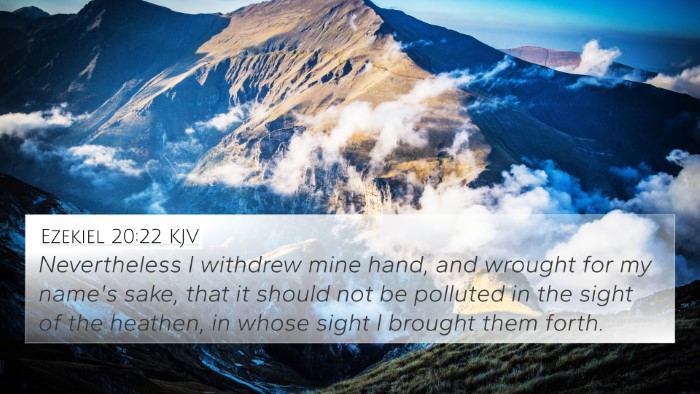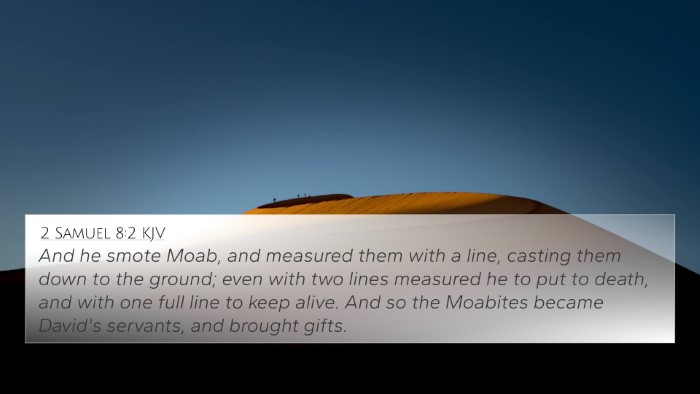Understanding Lamentations 2:8
"The Lord hath purposed to destroy the wall of the daughter of Zion: he hath stretched out a line, he hath not withdrawn his hand from destroying: therefore he made the rampart and the wall to lament; they languished together."
Summary of Meaning
Lamentations 2:8 reveals God's determination to judge Jerusalem due to its sins, which leads to devastation. The 'wall of the daughter of Zion' signifies not just a physical structure but a representation of God's protection over the city. By stretching out a line, God indicates His decree to measure out destruction. This profound lamentation emphasizes the sorrow for what has been lost, representing God's judgment and the consequences faced by His people.
Insights from Public Domain Commentaries
Matthew Henry's Commentary
Henry emphasizes the inevitability of God's judgment when the wickedness of a people reaches its peak. The wall symbolizes the strength of Jerusalem, which is now being dismantled as a direct consequence of disobedience. He notes that God's hand, often a source of salvation, is now involved in destruction, implying a shift from mercy to justice.
Albert Barnes' Notes
Barnes discusses the metaphorical language used to describe God's plans. He interprets 'stretching out a line' as a divine measuring tool that signifies both planning and execution of judgment. He draws attention to the helplessness of the wall, showing that even the defenses erected by man are futile against divine will. The lamenting walls reflect a nation besieged by its own iniquities.
Adam Clarke's Commentary
Clarke provides a historical context, noting that the destruction referenced here speaks to actual events experienced by Jerusalem. He points out the sorrow of the people, feeling the weight of God's judgment in the deterioration of what was once both a city and a spiritual bastion. The futility of resistance against divine judgment is stressed, demonstrating the importance of repentance.
Bible Verse Cross-References
- Jeremiah 52:14 - Highlights the destruction of Jerusalem and its defenses.
- Ezekiel 22:30 - Speaks to God's search for a righteous individual to prevent judgment.
- Micah 3:12 - Discusses the consequences of Israel's leaders' corruption leading to destruction.
- Lamentations 1:8 - Reflects on the shame and loss felt by Jerusalem due to sin.
- Isaiah 5:5 - God indicates the removal of His protective hedge due to Israel's unfaithfulness.
- 2 Kings 25:10 - Describes the actual siege and destruction of Jerusalem.
- Deuteronomy 28:52 - Warns of the consequences of disobedience, including the destruction of defenses.
Thematic Connections Between Bible Verses
This verse ties into the larger biblical theme of judgment due to sin, as found throughout both the Old and New Testaments. The wall represents both physical and spiritual protection, and its destruction illustrates the loss that follows turning away from God.
Inter-Biblical Dialogue
By exploring Lamentations 2:8 in light of the teachings found in Jeremiah and Isaiah, one can see a clear trajectory of warning, judgment, and the eventual restoration theme that runs through the Bible.
Tools for Bible Cross-Referencing
Utilizing resources such as Bible concordances and Bible cross-reference guides aids in exploring these interconnections further. Cross-reference Bible studies can reveal how these themes of judgment have historical roots and implications for contemporary faith practices.
How to Use Bible Cross-References
- Identify key terms and themes in the primary verse.
- Utilize a Bible concordance to search for related passages.
- Engage with comparative Bible verse analysis to deepen understanding.
- Explore thematic connections to see relevant scriptures in context.
- Incorporate findings into personal study or sermon preparation.
Conclusion
Lamentations 2:8 serves as a poignant reminder of the consequences of disobedience and the depth of sorrow that follows divine judgment. Through cross-referencing and thematic study, one becomes equipped to understand the rich tapestry of scripture, its warnings, and the hope for redemption.
